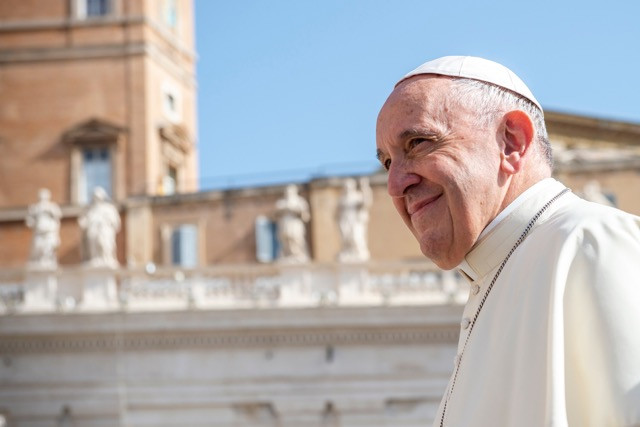The editor of the Vatican women’s magazine, Lucetta Scaraffia, has announced that she and her all-female editorial team are to suspend its publication. In a letter to Pope Francis, which she has also made public, Scaraffia explains: “We are throwing in the towel because we feel surrounded by an atmosphere of distrust and progressive delegitimisation.”
The magazine, Donne Chiesa Mondo (Women Church World), is published by the official Vatican newspaper L’Osservatore Romano. Scaraffia blames increasing interference and control by the Osservatore’s new editor, Andrea Monda, and says a change in editorial direction has taken away her team’s autonomy.
Describing the wide-ranging scope of the magazine, which includes contributors from different faiths as well as historical, biblical and theological perspectives, she wrote: “We often felt like miners who discovered precious metal strands and brought them to light and to the knowledge of all: a true human and universal richness, and in this sense ‘Catholic’.”
Scaraffia has maintained her position as one of the few women with a significant voice in the Vatican by way of a precarious balancing act between speaking out on issues of concern while refraining from challenging church teaching. But in recent years she has become increasingly bold. Last month she wrote a strongly worded article on the sexual abuse of women, including religious sisters, by clergy, referring to “imposed abortions” and “children not recognised by priests”. She called for “a complete revision of the Catholic culture and of the training of future priests”. Soon after that, Pope Francis admitted that clerics had sexually abused and even enslaved nuns.
Ruffled feathers
Scaraffia’s outspokenness has ruffled clerical feathers, but she has also been criticised by liberal Catholics for her conservatism with regard to church teaching on issues such as homosexuality. Some Italian feminists complain that she does not engage sufficiently with the views of women who are not part of her own circle.
Yet she is right when she suggests in her editorial that there is an attitude of divide and rule in the Vatican with regard to women. Men in positions of authority appoint obedient women who can be relied on to undermine those women who seek change and who are willing to speak out.
Monda, though, has rebutted Scaraffia’s claims, saying he is committed to the continued publication of Donna Chiesa Mondo and insisting that at no time did he threaten the editorial freedom of her magazine or attempt to impose clericalism of any kind.
Monda was appointed as editor-in-chief of L’Osservatore Romano by Pope Francis last December – replacing Giovanni Maria Vian under whose editorship Scaraffia had begun the women’s section of the newspaper, in 2012. An academic and journalist, Monda is not part of the clerical elite waging war on Francis’s reforms. An Italian contact tells me that Monda has invited a group of 35 women, including some of Italy’s best-known feminist theologians, to a meeting next Monday. She points out that these women can hardly be described as “obedient”. Another contact in the Italian media suggests that Scaraffia is perceived as being too close to the ancien régime, and she has to go in order for real reform to take place.
Dismantle clericalism
In the arcane and convoluted world of Vatican sexual politics, it is impossible to know what to believe in these situations, and there may be some truth in all these accounts. But whatever the case, Monda is part of an institution in which women are indeed bullied, silenced, controlled and excluded by male clerics. Francis has previously telephoned Scaraffia in the past to thank her for the work she does for women in the church. Yet many of us would say he has done too little too late.
Francis is under siege from conservatives who are nostalgic for the clerical power and doctrinal absolutism that flourished under the previous two popes, but he has failed to see that the best way to dismantle clericalism, and usher in the kind of joyful, risk-taking church he claims to want, is by promoting more women to positions of leadership and opening up a discussion about women’s ordination.
But still, I regret Scaraffia’s decision, and I hope she will continue to work as part of a vocal and united network of Catholic women who are committed to speaking out. She has earned the trust and support of many women, and her willingness to take a stand is sure to encourage others to stand tall in those many situations in which men do seek to exercise clerical regimes of domination over women.
By Tina Beattie, professor of Catholic studies at Roehampton University, London
